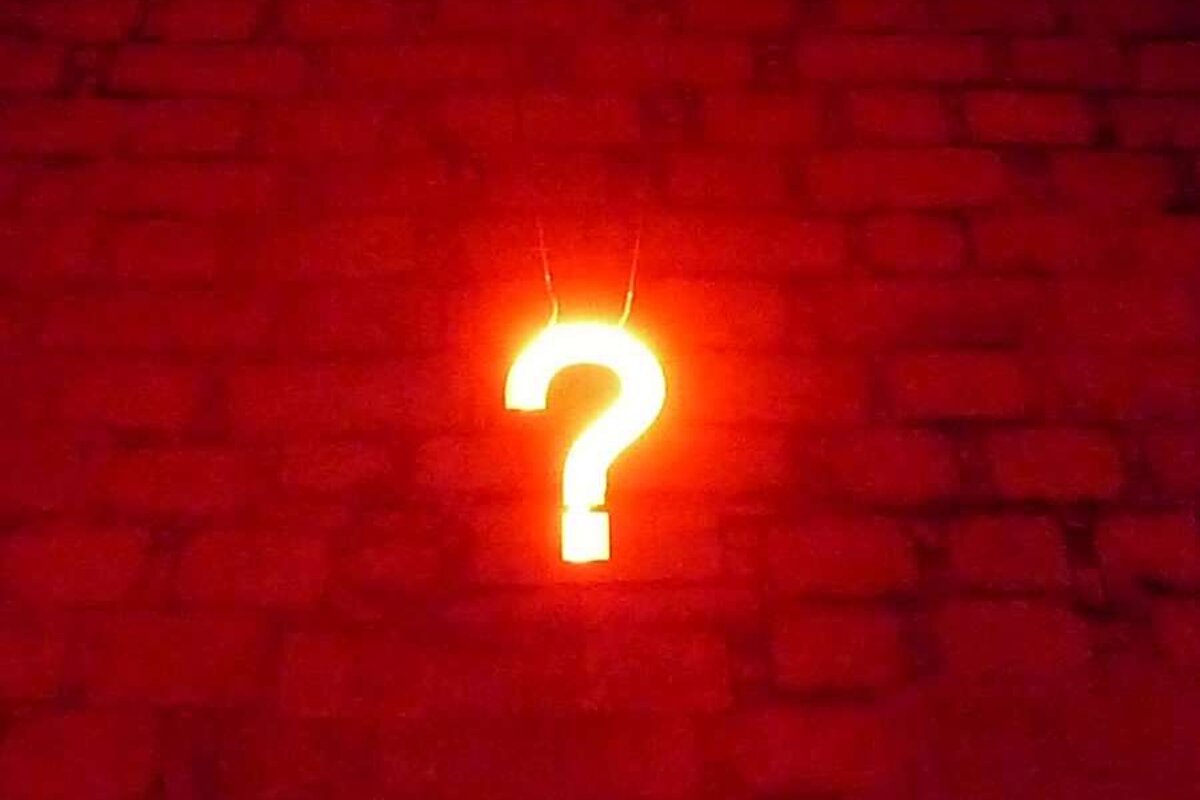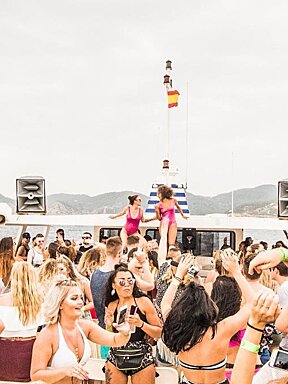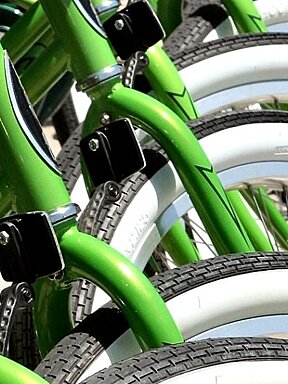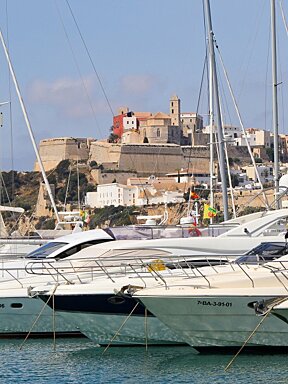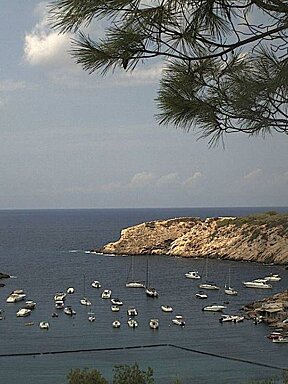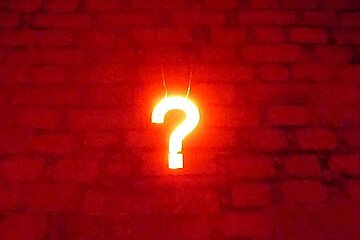
© http://www.seemallorca.com
Tourist information in Ibiza
Get tourist information for Ibiza
Visiting a new destination always raises typical questions, here is a list of practical information covering everything from money exchange, to national holidays, driving, health and more.
Time in Ibiza
Like the rest of Spain, Ibiza is one hour ahead of Greenwich Mean Time (GMT+1), but from late March until late September, summer time (GMT+2) applies.
Opening times in Ibiza
As a rough guide:
- Shops: 9.30AM - 1.30PM; 4.30PM - 8.00PM
- Offices: 9.00AM - 1.00PM; 4.00PM - 7.00PM
- Banks: 9.30AM - 2.00PM
- Churches: 8.00AM - 1.00PM; 6.00PM - 8.00PM
- Museums: 9.00AM - 6.00PM
- Pharmacies: 9.00AM - 1.00PM; 4.00PM - 8.00PM
In addition to the times shown above, large department stores, as well as supermarkets and shops in tourist resorts may open outside these times, especially in the summer. In general, pharmacies, banks and shops close on Saturday afternoon, though banks stay open until 4.30PM Monday to Thursday, October to May, but close Saturday, June to September
The opening times of museums is just a rough guide; some are open longer hours in summer while hours are reduced in winter. Some museums close at weekends or another day in the week, and can be shut over lunchtime.
Post Offices in Ibiza
Post offices (Correus) are open 9am to 1pm but some also open in the afternoon and on Saturday morning.
National Holidays inIbiza
Many shops and offices close for longer periods around Christmas and Easter, as well as for the festivals of Corpus Christi in May/June and Sant Jaume on 25 July
- 1 Jan - New Years Day
- 6 Jan - Epiphany
- Mar/Apr - Good Friday, Easter Monday
- 1 May - Labour Day
- 15 Aug - Assumption of the Virgin
- 12 Oct - National Day
- 1 Nov - All Saints' Day
- 6 Dec - Constitution Day
- 8 Dec - Feast of the Immaculate Conception
- 25 Dec - Christmas Day
Concessions in Ibiza
Students: Holders of an International Student Identity Card may be able to obtain some concessions on travel, entrance fees etc. There are two youth hostels on the island, on near Palma and the other outside Alcudia. Another cheap form of accommodation is to stay in a monastery; just turn up or book ahead.
Senior Citizens: Mallorca is an excellent destination for older travellers, especially in winter when the resorts are quieter, prices more reasonable and hotels offer very economical long-stay rates. The best deals are available through tour operators who specialise in holidays for senior citizens.
Driving Regulations in Spain
For more information about driving in Spain please see our Driving Guide.
- Speed limits on: motorways (autopistas) 120kph; main roads 100kph; minor roads 90kph; urban roads 60kph
- Seat belts: Must be worn in front seats at all times and in rear seats where fitted
- Drink Driving: Random breath-testing exist anytime of the day and especially at night. Limits are as follows - 80mg of alcohol in 100ml of breath, for your own safety as well as others
- Fuel (petrol - gasolina) is available in different grades - Super plus (98 octane), Super (96 octane), unleaded (Super sin plomo), Mezcla or Normal (90 octane) and gasoleo or gasoil (diesel)
- Petrol stations are normally open 6AM - 10PM, closed Sundays, though larger ones that are often self-service are open 24 hours. Most take credit cards. Note there are fewer petrol stations in the mountain areas and none on motorways
- If you break down call - Real Automovil Club de España (RACE) Tel: +34 (0)91 593 3333. If it is a hired car, call your hire company.
Driving in Mountainous Areas
If you do decide to hire a car to drive along the coast, remember that these steep mountainous roads can be treacherous. They are full of hairpin bends and there are few protective barriers to spoil the view! They also get very busy during the summer season, so plan for the journey to take extra time during these peak seasons. Also beware of tour buses who seem to be fearless and will occupy most of the road.
Electricity in Spain
The power supply in Spain is 220-225 volts, though some hotels still have 100 - 120 volt inlets. Sockets accept two-round-pin style plugs, so an adaptor is needed for most non-continental appliances and a transformer for appliances operating on 100-120 volts.
Telephones in Ibiza
A public telephone (telefono) takes most euro cent coin. A phonecard (credifone) is available from post offices and tabacos. The telephone code for all the Baleares islands is 971. If you want to dial a number within the Baleares islands, say the guy next door, you still need to dial the 971 prefix before the six other numbers.
For telephone operator dial 1002.
International dialling codes to Ibiza is +34 971.
Try to use the public telephones because telephone rates in hotels can be very expensive.
Safe Water in Spain
Tap water is generally safe though it can be heavily chlorinated. Mineral water is recommended as is cheap to buy and is sold as con gaz (carbonated) and sin gaz (still). Remember to drink plenty of water during hot weather.
Sun Advice in Spain
The sunniest (and hottest) months are July and August with an average of 11 hours sun a day and daytime temperatures of 29ºC. Particularly during these months you should avoid the midday sun and use a strong sunblock.
Health in Ibiza
For further information please see our Health & Emergencies section.
Drugs - Prescription and non-prescription drugs and medicines are available from pharmacies (famacias), distinguished by a large a green cross. They are able to dispense many drugs that would only be available on prescription in other countries.
Insurance - Nationals of EU and certain other countries can get medical treatment in Spain with the relevant documentation, although private medical insurance is still advised and is essential for all other visitors.
Dental Services - Dental treatment is not usually available free of charge as all dentists practice privately. A list of dentists (dentistas) can be found in the yellow pages (pagina amarillas) of the telephone directory. Dental treatment should be covered by private medical insurance.
Personal Safety in Ibiza
The national police force, the' Policia Nacional' keep law and order in urban areas. Some resorts have their own tourist-friendly 'Policia Turistica'. If you need a police station ask for 'la comisaria' and for police assistance just call '092' or '122' free from any call box (telephone cabin).
To help prevent crime:
- Do not carry more cash than you need
- Do not leave valuables on beach or poolside
- Beware of pickpockets in markets, tourist sights or crowded places
- Avoid walking alone in dark alleys at night
NOTE: Crime rate is very low and Ibiza is generally very safe for both children and adults.
VAT TAX (IVA in Spain)
Keep an eye out for the appearance of extra costs on your bill. Some hoteliers, restaurateurs and shopkeepers include VAT (IVA) currently at 21%, in the price, others don't. It is worth checking the menu to see whether it will be included or added. It is not compulsory to include VAT in prices quoted but you should be aware of the possible hidden cost or the bargain meal you thought you had found might not turn out to be such good value after all.
Customs & Excise in Ibiza
Allowances on goods bought outside the EU: Alcohol (over 22º vol) - 1L OR (under 22º vol) 2L; Still table wine - 4L; Beer - 16L; Cigarettes - 200 OR Cigars - 50 Tobacco - 250g; Perfume - 60cc/ml; £390 worth of all other goods including gifts and souvenirs
Goods bought inside the EU: There are no limits on the amount of alcohol and tobacco you can bring into the UK from an EU country, as long as:
- You transport the goods yourself.
- The goods are for your own use or as a gift. If the person you give the goods to pays you in any way (including reimbursing you for any expenses or payment in kind), then it's not a gift and the goods may be seized.
- The goods are duty and tax paid in the EU country where they were acquired.
Please note that if you bring back large quantities of alcohol or tobacco, a customs officer is more likely to ask about the purposes for which you hold the goods. This will most likely be the case if you appear at the airport with more than:
Alcohol (over 22º vol)- 10L (under 22º vol - 20L); Still table wine - 90L; Fortified wine e.g. port or sherry - 20L; Beer - 110L; Cigarettes - 3200; Cigars - 200; Tobacco - 3kg; Perfume - no limits
As these limits may change, please use the following link to check for the latest information.
www.ukba.homeoffice.gov.uk/allowances
